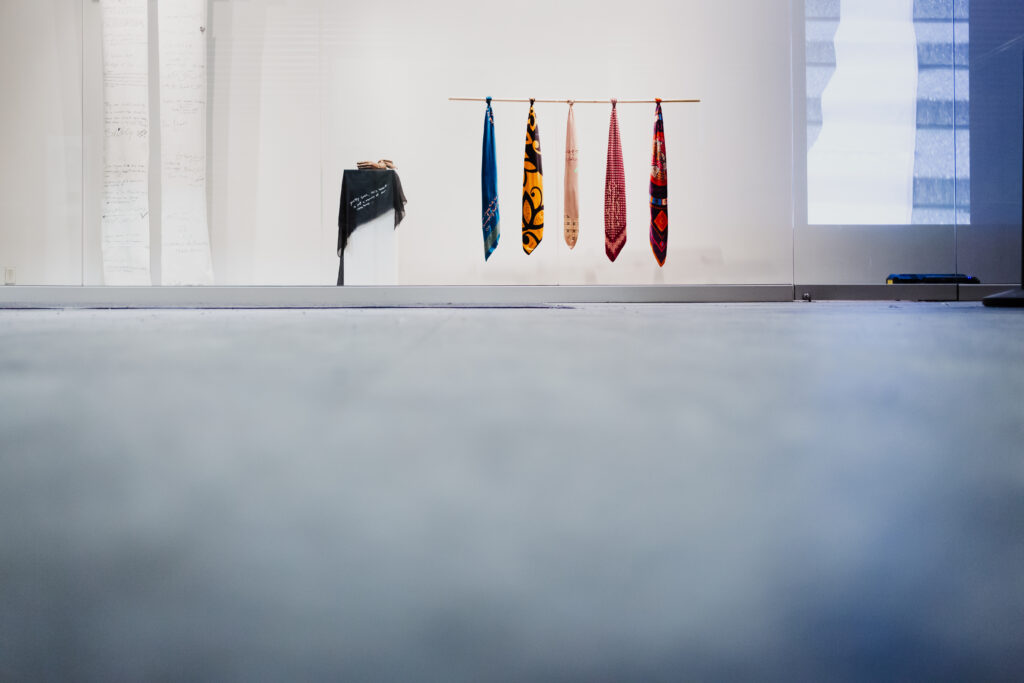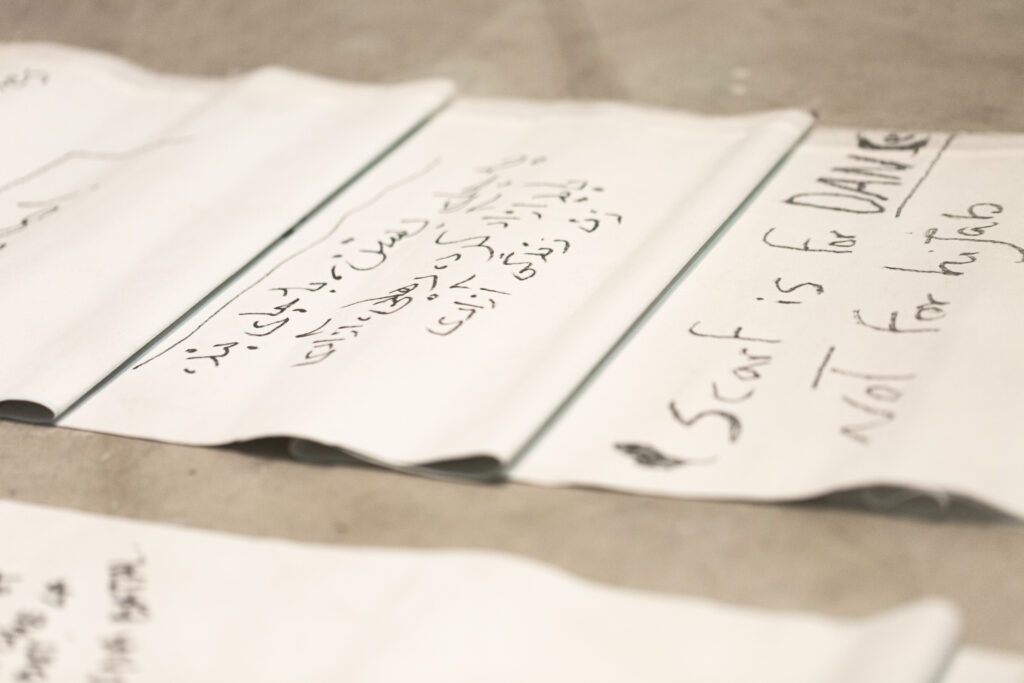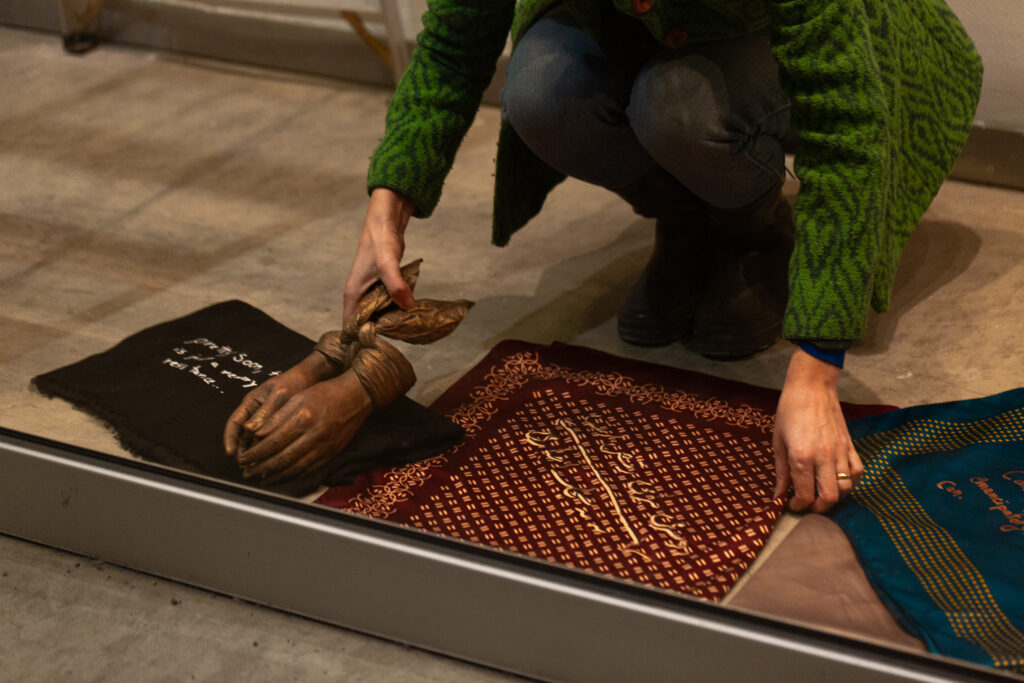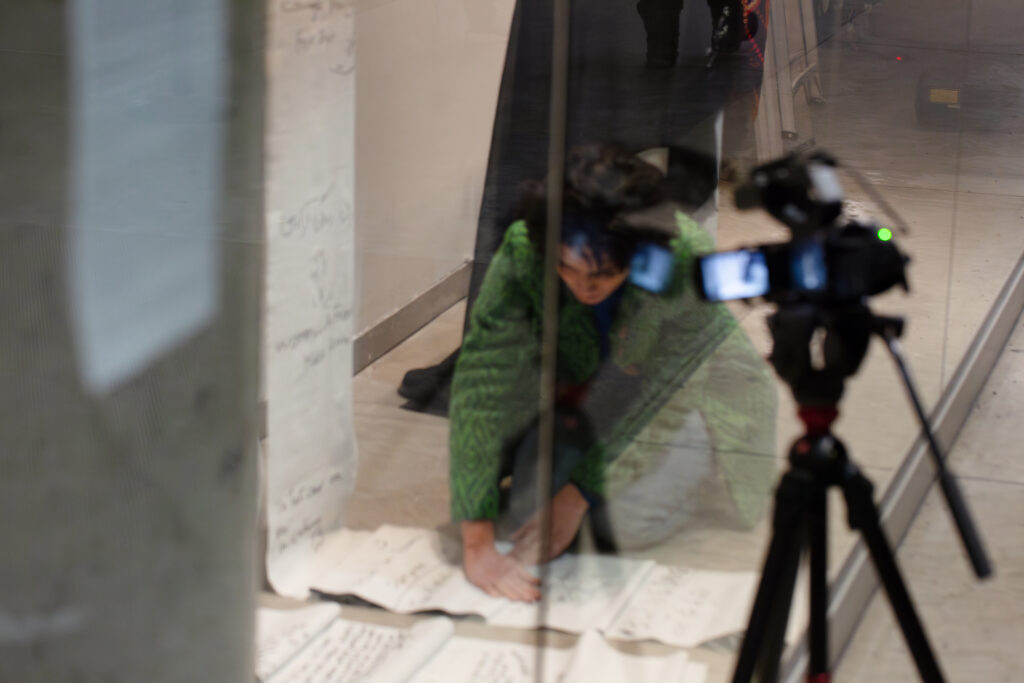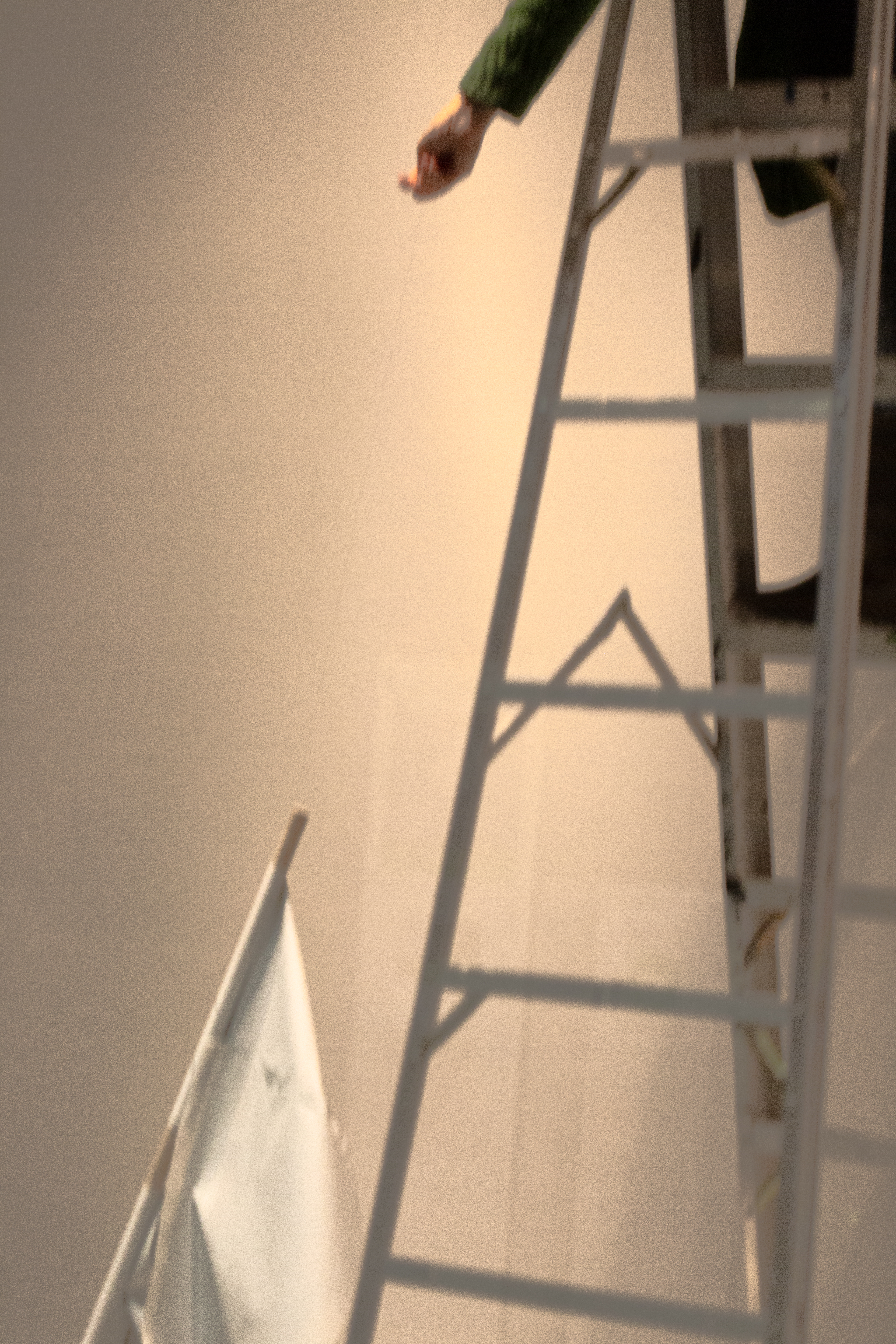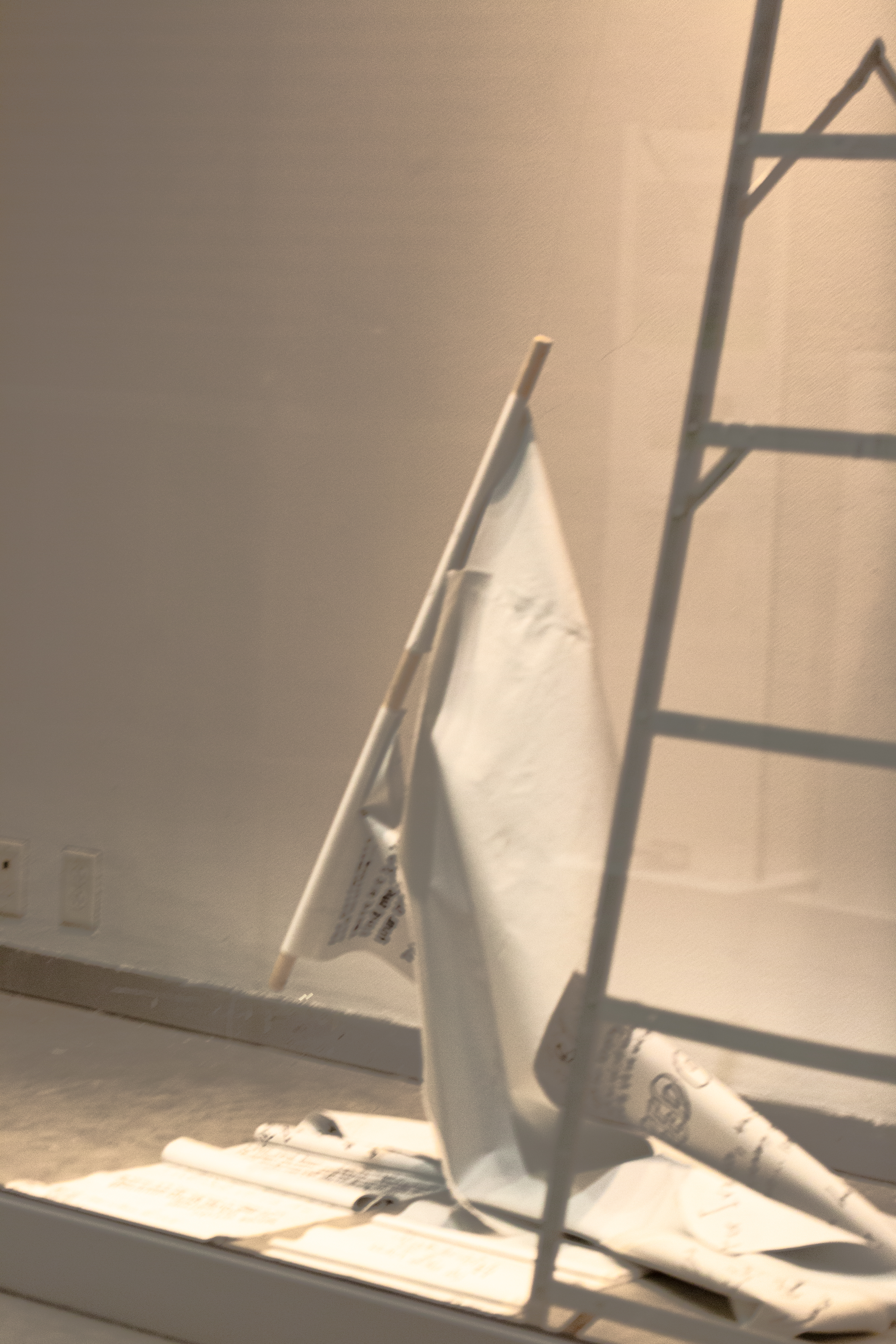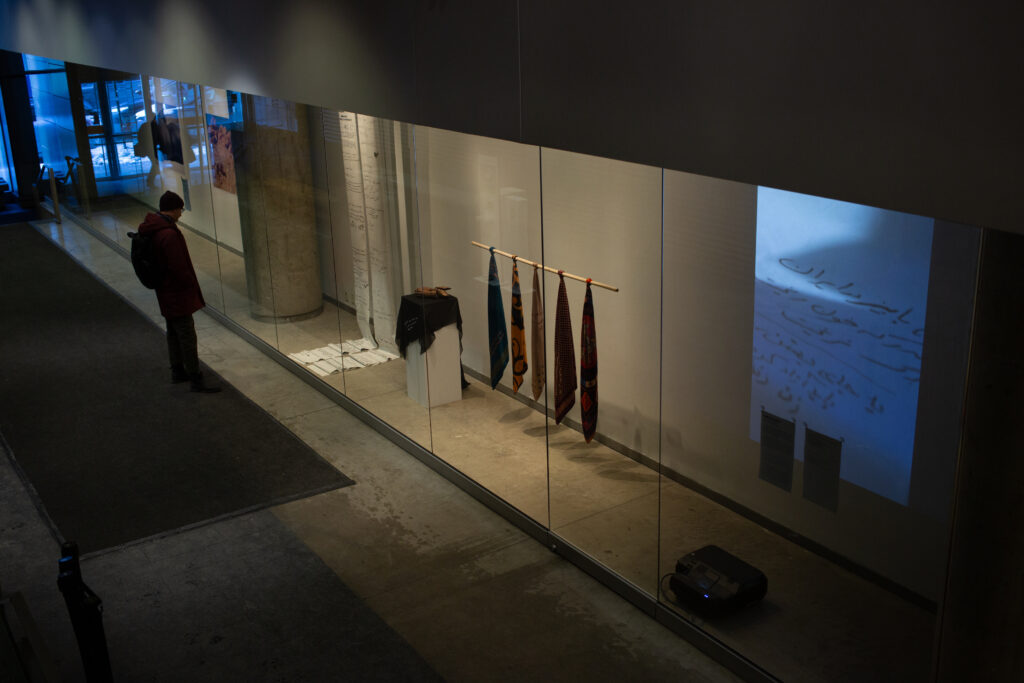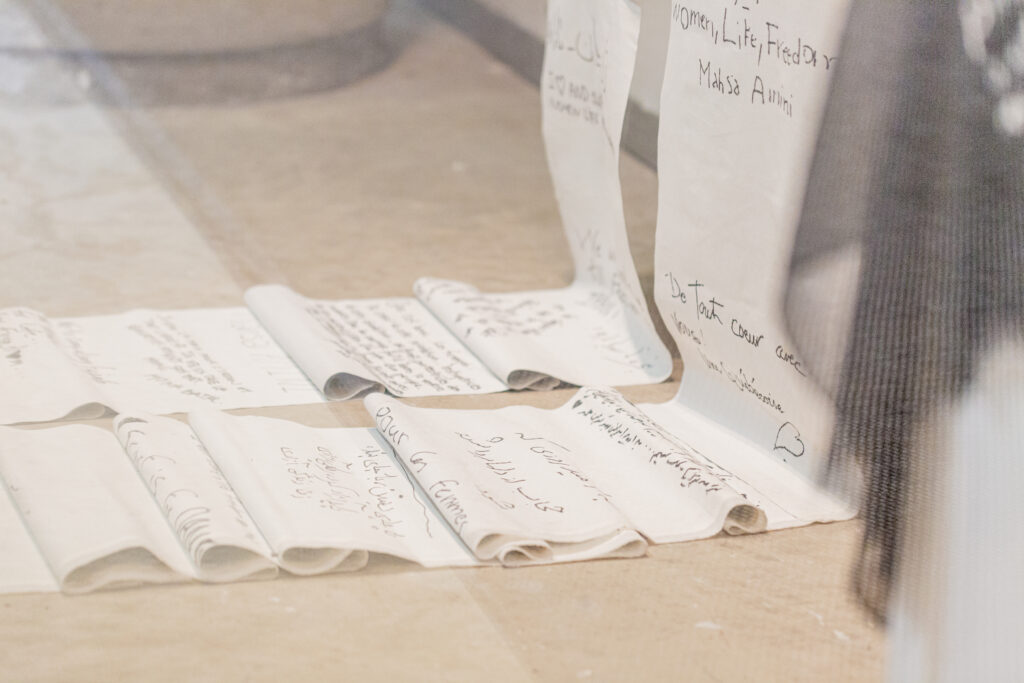Silenced Voices is a performance work to reclaim the narratives that were erased from the This is not a Scarf installation during the group exhibition EMBODIED URGENCIES at FOFA Gallery, from January 15 to February 17, 2024.
“This is not a Scarf” performance was a collaborative work I made with Elahe Moonesi and Soha Ebrahimzandi in 2022. This work was created in response to decades of ideologizing and politicizing women’s bodies in Iran and is motivated by the tragic death of Mahsa Amini. The 22-year-old woman was killed by the morality police in Iran on September 20, 2022, simply because she did not conform to the Islamic government’s standards of proper hijab.
“This is not a Scarf” performance serves as an intervention in response to the historical context of mandatory veiling laws enforced over the last 45 years. This situation parallels the mandatory unveiling laws imposed on women during the reign of Reza Pahlavi in 1936. In both cases, women were compelled to embody the political ideologies of their country, undermining their agency in defining their clothing and identity.
The performance happened in front of the Contemporary Art Museum in Montreal. Looking closely at the work, we find traces of the voices of Iranian women in the diaspora who participated in this public intervention performance. Elahe Moonesi and I stood on the stairs of Place des Arts on October 30th, 2022, while hundreds of scarves donated by Iranian women in Montreal were piled at the foot of the stairs with the instruction for the public to intervene. The public was informed to use this object, in any way they wished, over the performers. The performance, which lasted three hours, was documented on video. The public participants who participated were mostly Iranian women whose embodied pain, spanning the last forty-five years across a few generations in Iran and the diaspora, motivated their tracing through words on the long canvas scroll.
This performance created the opportunity for them to inscribe on the scroll and express their embodied experience freely in a safe space. The process of tying a scarf around performers’ bodies triggered emotions in their own recollection of the experience of the regime’s imposition of hijab by this enforced object. Among what they wrote on the scroll, “Pour les femmes Iraniennes…[Fuck Hijab]” reads part of the scroll. Further down, it reads, “Scarf is for DANCE, [Not for Hijab],” written by another Iranian woman during the performance. The gallery hid both of these parts on the scroll by folding them back to hide them, based on a series of complaints they received demanding the removal of these elements. In response, I dismantled the installation at the exhibition’s closing and transformed this act into a new performance, Silenced Voices. This project confronts the implications of institutional inhibitions on feminist works, exploring how these actions affect transnational solidarity with Iranian women. This performance examines the barriers that hinder the visibility and representation of the struggles of Iranian women. This work aims to emphasize how the erasure of these narratives can reinforce the power structures that Iranian women are critiquing. Through Silenced Voices, I aim to reclaim the narratives that were erased and create a space where Iranian women’s resistance can be freely expressed.
